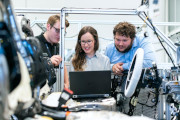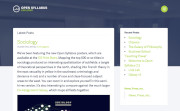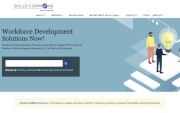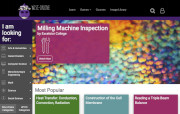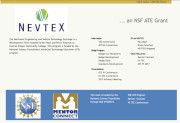
Northwest Engineering and Vehicle Technology Exchange (NEVTEX)
coccweb.cocc.edu/bemerson/NEVTEXGlobal/NEVTEXMain.html
The West Coast region of the United States has demonstrated significant business development and political commitment to the emerging electric drive industry, which includes electric and hybrid electric vehicles (EV/HEV) and hydrogen fuel cell vehicles. Worldwide, the market is growing steadily, with Japan leading the way and the United States coming in second. Oregon, Washington and California report nearly one-third of all EV/HEV ownership in the United States. There is wide recognition that current automotive training programs for students and technicians need to be dramatically redesigned to guarantee mastery of these emerging, advanced vehicle systems. The investigative team of this ATE project will address this need by working with selected automotive industry and community college partners to create a standardized approach for training and certifying electric drive technicians. Once completed, the proposed training standards will serve to spearhead a process with the long-term goal of instituting a licensing process for these highly skilled workers who are working with high voltage and high-pressure gaseous fuels. The project team will develop and implement outreach activities aimed at increasing the enrollment of underrepresented groups, including women, Latinos, and Native Americans, in automotive technology programs and career pathways at community colleges. Emphasis will be placed on disseminating and sharing all products and outcomes at national meetings and through a website that will be developed to highlight this project.

